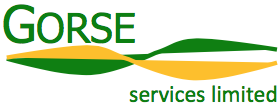With BREXIT negotiations looming, UK agriculture faces a period of significant uncertainty. Prospects of declining markets, trade tariffs, loss of subsidy and a decreasing workforce pose significant challenges. But could BREXIT offer exciting opportunities to ensure the survival of a thriving and sustainable sheep production industry in the upland areas of the UK?
The “Balancing Upland Farming and the Environment” seminar at North Sheep 2017 bought together representatives from the sheep production sector, the National Parks and the National Trust. They argued for the need to strengthen collaboration between stakeholders engaged in farming, environmental protection and public access to the countryside. Strength comes in numbers and a united voice. If upland sheep farming is to survive and thrive, these sometimes competing voices must come together to influence and shape post-BREXIT Government policy.
Patrick Begg of the National Trust argued that farmers and those engaged in environmental protection share many aspirations. Sheep farmers have a vital role to play in the protection of the uplands, a unique and important ecosystem (e.g, in the protection of delicate peat soils or heather moorlands, or through the management of clean still waters, and the reinstatement of woodland habitats).
Farmers should be should be rewarded for playing this role. The peat soils of the uplands are the largest stores of carbon in the UK. With climate change high on the agenda, farmers have a vital role in protecting these significant carbon sinks.
BREXIT and the inevitable changes to subsidy provides the farming and environmental communities an opportunity to press for new-style Agri-Environment schemes such as ‘Payment by Results’ – trialling of which was described by Adrian Shepherd of the Yorkshire Dales National Park. Instead of following a prescribed set of rules, (e.g. strict mowing dates), farmers are free to manage the land as they see fit in order to achieve a positive environmental outcome.
Under such schemes, farmers annually assess the well-being of habitats (e.g. species-rich meadows or quality habitat for breeding waders) against a set of agreed indicators to achieve an overall “health” score. From this self-assessment, they can measure their success and set targets for the following year.
During a seminar on post BREXIT prospects for sheep meat exports, Remi Fourrier of AHDB argued that BREXIT could provide the impetus for a more ‘aggressive’ approach to marketing British Lamb in the French market (25% of all lamb consumed in France is from the UK). With greater levels of freedom afforded by our departure from the EU, the unique distinctiveness, quality, sustainable production methods and high animal welfare standards of British Lamb can be communicated much more confidently opening up possibilities to build an even stronger British Lamb brand in Europe and other export markets.
This theme was also picked up by Patrick Begg who earlier argued that those involved in the marketing of sheep meat should take the opportunity to build a domestic brand centred on the ideas of provenance, quality and sustainable food production.
Using New Zealand as an example, Mark Young of CIEL enthusiastically outlined how new technologies and approaches such as genetic improvement can contribute towards productivity gains and decreased inputs. These approaches will be key to underpinning the long-term survival of UK sheep farming. It is a challenging future that sheep farmers face in the UK uplands.
But sustainable and profitable upland farming systems that provide access to public goods and are vital components of vibrant rural communities are possible in a post-BREXIT world argued the NSA’s Phil Stocker. However, this will only be achieved through determined and collaborative lobbying of Government to shape future policy and through the adoption of innovative practices in sheep production and sheep meat marketing.
